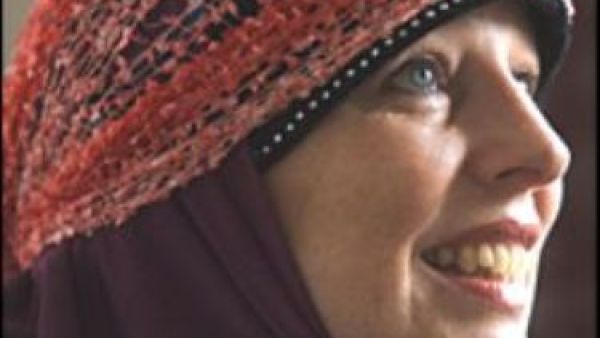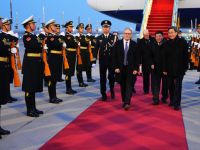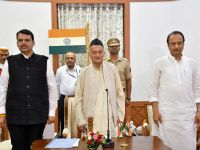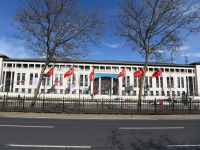When the world watched in disbelief as terrorists flew planes into the World Trade Centre in New York a decade ago, nobody quite knew the scale of the impact it would have. But one thing soon became apparent – the world had changed, and would in fact never be the same again in wake of the 9/11 attacks masterminded by Al Qaeda terror chief Osama bin Laden.
On a personal level, life changed for those who lost loved ones, but on a bigger scale, the world changed for everyone: from the traders on Wall Street to shopkeepers in Pakistan.
Dr Ted Karasik, Director of Research and Development at the Institute for Near East and Gulf Military Analysis (INEGMA) in Dubai, said: “America the fortress didn’t exist anymore. Because of that, there was a complete change in security. There became greater scrutiny of individuals and in aspects of civil liberties.”
An attack on such a gross scale forced the world’s superpowers to reassess their security. “There was an improvement in intelligence capabilities and cooperation amongst states which didn’t exist before. We saw the emergence of new strategic relationships, and more data sharing Arab states, the US, Europe and Interpol,” said Karasik.
This can be seen as a positive change, but the negativity which came with that deadly day was horrific.
“The backlash in terms of the perception of Muslims was very serious and dangerous. Muslims grouped together with violent extremism, which wasn’t an accurate portrayal of Islam,” said Karasik.
Rachel Morton, 33, managing director of Social Circles UAE, is a New Yorker, and was living in California at the time.
She moved to the UAE in 2009. She agrees that after the attacks there seemed to be an increase in racism. “In conversation you would hear people saying racist slurs towards Arabs and Muslims. A massive amount of people started doing it,” she said.
Ten years on, travelling around the globe has also changed considerably since the attacks, with increased checks at airports and tighter regulations. “Having stamps from this region has people looking twice. I feel I am held longer than necessary and am asked numerous questions when I went back to the States,” Morton said.
And security is also tighter in her hometown.
“Now New York is on crackdown and you can’t go anywhere without ID. It was never like that when I was growing up,” she added.
Another Dubai resident, magazine editor Aya, 31, from the UK, admitted the intense focus on Muslims played a part in her decision to convert to Islam in 2008.
“I wasn’t Muslim at the time of 9/11. I was 21, and my first thought was fear. Then I asked why it had happened.
“Answers were immediately made up, and didn’t make sense to me.
For the first five years, all I heard about Islam was bad things,” she said.
Over the next couple of years, Aya became more interested. “After reading a booklet someone gave to me on Islam, I wrote off what I read in the papers.
It couldn’t sit right with me that so many people could say, ‘If you believe this [Islam] you’re a terrorist’.”
Aya’s eventual move to the UAE in 2007 strengthened her belief so much so that she converted the following year, a life-changing decision which she said would not have happened had it not been for the attacks.
“If 9/11 hadn’t happened, I wouldn’t have asked all those questions. It made me convert,” she says. “I don’t know if it was a conspiracy, extremism, a plot, I never will.
“But the impact it had on me was profound. It made me realise this was the way I wanted to live my life.”
After so many years, it is important for the world to learn from what happened, and its consequences. Karasik added: “An anniversary always brings about a lot of reflection about what was done right and wrong. We need to look at the past and understand. The lessons learned need to be applied to the future.”
By Mishaal








